 After calling the gay community misogynistic on an episode of Bret Easton Ellis' podcast, Rose McGowan offered an apology of sorts. "Misogyny endangers me as a human. It also endangers the LGBT community," McGowan tweeted after her comments were criticized. "Could I have articulated my frustration in a better fashion? Undoubtedly. For that I apologize, but I stand by the overall point." The "Charmed" actress is the latest celebrity to join our apology hall of fame:
After calling the gay community misogynistic on an episode of Bret Easton Ellis' podcast, Rose McGowan offered an apology of sorts. "Misogyny endangers me as a human. It also endangers the LGBT community," McGowan tweeted after her comments were criticized. "Could I have articulated my frustration in a better fashion? Undoubtedly. For that I apologize, but I stand by the overall point." The "Charmed" actress is the latest celebrity to join our apology hall of fame: 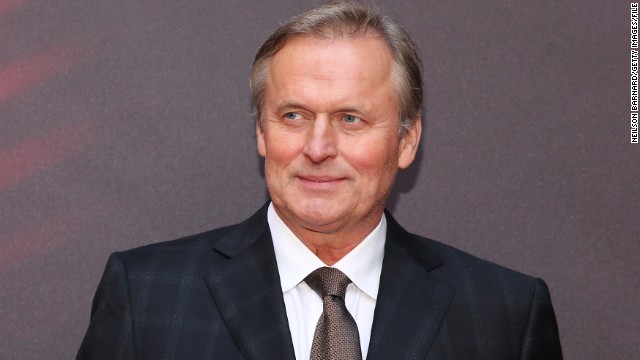 John Grisham is taking back statements he made about child pornography and sex offenders. In a recent interview with the UK's Telegraph, the lawyer and prolific author sparked outrage when he expressed his belief that some people who view child pornography online are receiving punishments that don't match the scale of the crime. He later issued a statement saying, "Anyone who harms a child for profit or pleasure, or who in any way participates in child pornography -- online or otherwise -- should be punished to the fullest extent of the law."
John Grisham is taking back statements he made about child pornography and sex offenders. In a recent interview with the UK's Telegraph, the lawyer and prolific author sparked outrage when he expressed his belief that some people who view child pornography online are receiving punishments that don't match the scale of the crime. He later issued a statement saying, "Anyone who harms a child for profit or pleasure, or who in any way participates in child pornography -- online or otherwise -- should be punished to the fullest extent of the law." 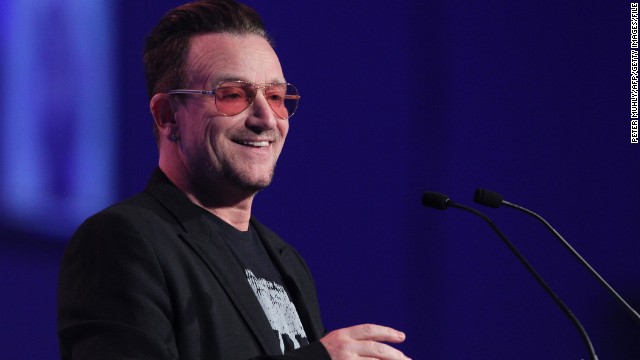 U2 frontman Bono apologized on behalf of his band after facing a huge backlash for releasing their new album for free. It wasn't so much the lack of a price tag that drew ire but the fact that it was automatically downloaded to iTunes users' libraries. "Might have gotten carried away with ourselves," Bono said during an October Facebook chat. "Artists are prone to that thing."
U2 frontman Bono apologized on behalf of his band after facing a huge backlash for releasing their new album for free. It wasn't so much the lack of a price tag that drew ire but the fact that it was automatically downloaded to iTunes users' libraries. "Might have gotten carried away with ourselves," Bono said during an October Facebook chat. "Artists are prone to that thing." 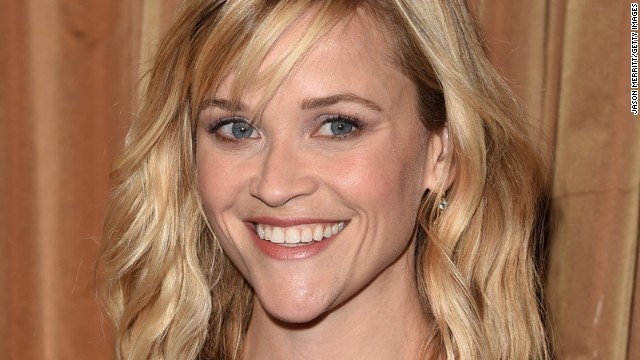 Reese Witherspoon had to apologize for her drunken actions when she was caught on camera mouthing off to a police officer after she and her husband were pulled over in 2013. "It's completely unacceptable, and we are so sorry and embarrassed. We know better, and we shouldn't have done that," Witherspoon said on "Good Morning America." She then gave a semi-apology in 2014 with the admission: "It's part of human nature. I made a mistake."
Reese Witherspoon had to apologize for her drunken actions when she was caught on camera mouthing off to a police officer after she and her husband were pulled over in 2013. "It's completely unacceptable, and we are so sorry and embarrassed. We know better, and we shouldn't have done that," Witherspoon said on "Good Morning America." She then gave a semi-apology in 2014 with the admission: "It's part of human nature. I made a mistake."  After Jason Biggs tweeted -- and defended -- a joke about the Malaysia Airlines crash in July, he deleted his tweets and apologized for his remarks, saying: "People were offended, and that was not my intent. Sorry to those of you that were." He continued: "I understand that my comments might have come off as insensitive and ill-timed. For that, I apologize."
After Jason Biggs tweeted -- and defended -- a joke about the Malaysia Airlines crash in July, he deleted his tweets and apologized for his remarks, saying: "People were offended, and that was not my intent. Sorry to those of you that were." He continued: "I understand that my comments might have come off as insensitive and ill-timed. For that, I apologize." 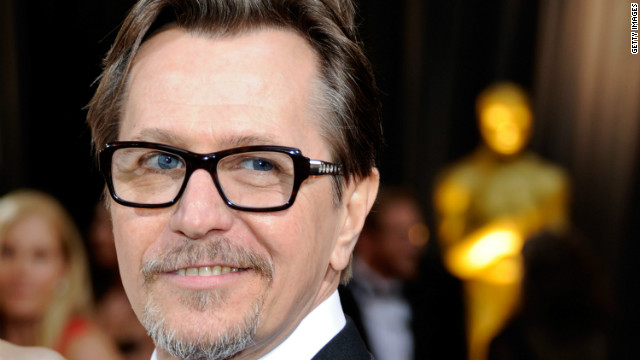 Gary Oldman was so remorseful for his remarks about Jewish people and Hollywood that he apologized twice.
Gary Oldman was so remorseful for his remarks about Jewish people and Hollywood that he apologized twice.  Justin Bieber is no stranger to the public apology, having said sorry for mistakenly kicking the Argentinian flag and saying "F*** Bill Clinton" after urinating in a janitor's mop bucket. In early June, he apologized not once but twice after racially offensive videos of him surfaced.
Justin Bieber is no stranger to the public apology, having said sorry for mistakenly kicking the Argentinian flag and saying "F*** Bill Clinton" after urinating in a janitor's mop bucket. In early June, he apologized not once but twice after racially offensive videos of him surfaced. 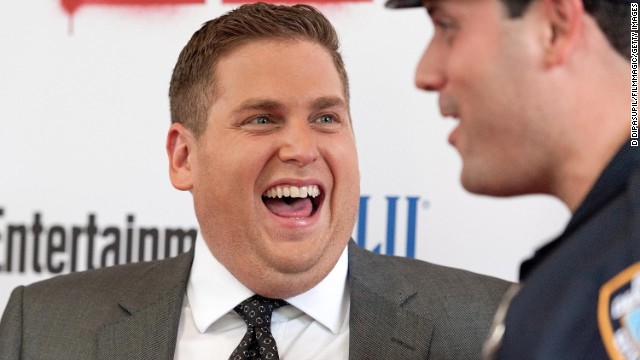 Being trailed by the paparazzi got the better of actor Jonah Hill in early June. The "22 Jump Street" star made a lewd remark and used a homophobic slur while in a confrontation with a paparazzo. He quickly apologized for his words, first on Howard Stern's radio program and then on "The Tonight Show" with Jimmy Fallon. His in-depth mea culpas were met with equal parts praise and criticism.
Being trailed by the paparazzi got the better of actor Jonah Hill in early June. The "22 Jump Street" star made a lewd remark and used a homophobic slur while in a confrontation with a paparazzo. He quickly apologized for his words, first on Howard Stern's radio program and then on "The Tonight Show" with Jimmy Fallon. His in-depth mea culpas were met with equal parts praise and criticism.  "Seinfeld" star Michael Richards went from beloved comic actor to persona non grata after he erupted during a standup performance in November 2006, screaming racial slurs at an African-American man in the audience. After video of his tirade went viral, Richards appeared on CBS' "Late Show with David Letterman" to say that he was "very, very sorry."
"Seinfeld" star Michael Richards went from beloved comic actor to persona non grata after he erupted during a standup performance in November 2006, screaming racial slurs at an African-American man in the audience. After video of his tirade went viral, Richards appeared on CBS' "Late Show with David Letterman" to say that he was "very, very sorry."  All the apologies in the world couldn't repair Kanye West's PR damage after he interrupted Taylor Swift's acceptance speech at the 2009 MTV Video Music Awards. Although he apologized more than once -- via Twitter, by phone and on "The Tonight Show" with Jay Leno as host -- public opinion wasn't swayed.
All the apologies in the world couldn't repair Kanye West's PR damage after he interrupted Taylor Swift's acceptance speech at the 2009 MTV Video Music Awards. Although he apologized more than once -- via Twitter, by phone and on "The Tonight Show" with Jay Leno as host -- public opinion wasn't swayed.  During Winona Ryder's 2002 trial for shoplifting from Saks Fifth Avenue, the shopping outlet's security chief testified that Ryder apologized with the claim that she'd committed the crime for a role. "She said, 'I'm sorry for what I did. My director directed me to shoplift for a role I was preparing,' " the security chief said.
During Winona Ryder's 2002 trial for shoplifting from Saks Fifth Avenue, the shopping outlet's security chief testified that Ryder apologized with the claim that she'd committed the crime for a role. "She said, 'I'm sorry for what I did. My director directed me to shoplift for a role I was preparing,' " the security chief said. 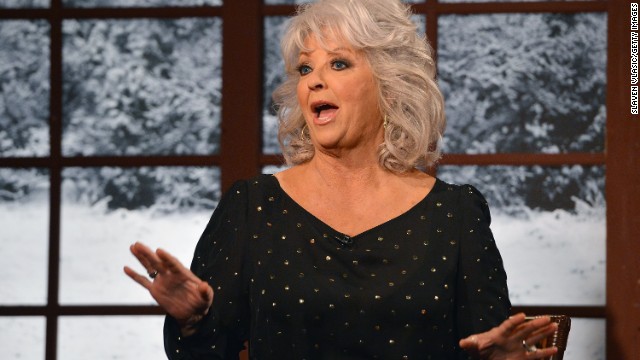 When Paula Deen was being sued for racial discrimination in 2013, she admitted to using the "N" word -- and there went the celebrity chef's career. Deen tried to make amends with two different videotaped apologies, but the execution just made matters worse.
When Paula Deen was being sued for racial discrimination in 2013, she admitted to using the "N" word -- and there went the celebrity chef's career. Deen tried to make amends with two different videotaped apologies, but the execution just made matters worse.  Everyone remembers Janet Jackson's "wardrobe malfunction" at the Super Bowl halftime show in 2004, but we bet you don't recall Timberlake's meek apology following the uproar. "Listen, I know it's been a rough week for everybody," he said. "What occurred was unintentional and completely regrettable, and I apologize if you guys were offended." Timberlake had to give that apology in order to participate in that year's Grammy Awards airing on CBS; Jackson declined to attend the event and apologize.
Everyone remembers Janet Jackson's "wardrobe malfunction" at the Super Bowl halftime show in 2004, but we bet you don't recall Timberlake's meek apology following the uproar. "Listen, I know it's been a rough week for everybody," he said. "What occurred was unintentional and completely regrettable, and I apologize if you guys were offended." Timberlake had to give that apology in order to participate in that year's Grammy Awards airing on CBS; Jackson declined to attend the event and apologize. 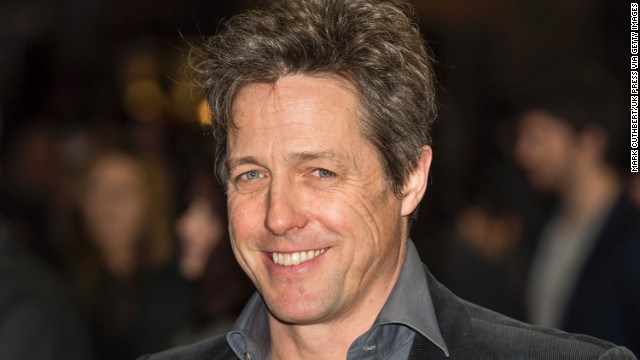 After being caught "engaging in a lewd act" with a "known prostitute" in Hollywood in 1995, Hugh Grant famously apologized on Jay Leno's "Tonight Show." The Brit actor -- responding to Leno's memorable question, "What the hell were you thinking?" -- said that it would be "bollocks" to hide behind excuses. "I did a bad thing, and there you have it."
After being caught "engaging in a lewd act" with a "known prostitute" in Hollywood in 1995, Hugh Grant famously apologized on Jay Leno's "Tonight Show." The Brit actor -- responding to Leno's memorable question, "What the hell were you thinking?" -- said that it would be "bollocks" to hide behind excuses. "I did a bad thing, and there you have it."  Julianne Hough is such a fan of "Orange Is the New Black" that she thought it would be fun to dress up as one of her favorite characters, "Crazy Eyes," for Halloween in 2013. Yet Hough went too far when she combined a prison orange jumpsuit with blackface, prompting outrage and a swift apology from the dancer/actress.
Julianne Hough is such a fan of "Orange Is the New Black" that she thought it would be fun to dress up as one of her favorite characters, "Crazy Eyes," for Halloween in 2013. Yet Hough went too far when she combined a prison orange jumpsuit with blackface, prompting outrage and a swift apology from the dancer/actress.  What hasn't Alec Baldwin apologized for? For starters, there's his 2007 regret for calling his then 11-year-old daughter Ireland a "rude, thoughtless little pig," which was followed by a semi-apology in 2011 for disrupting an American Airlines flight. More recently, the actor said he was sorry for using homophobic language in a confrontation with a photographer.
What hasn't Alec Baldwin apologized for? For starters, there's his 2007 regret for calling his then 11-year-old daughter Ireland a "rude, thoughtless little pig," which was followed by a semi-apology in 2011 for disrupting an American Airlines flight. More recently, the actor said he was sorry for using homophobic language in a confrontation with a photographer. 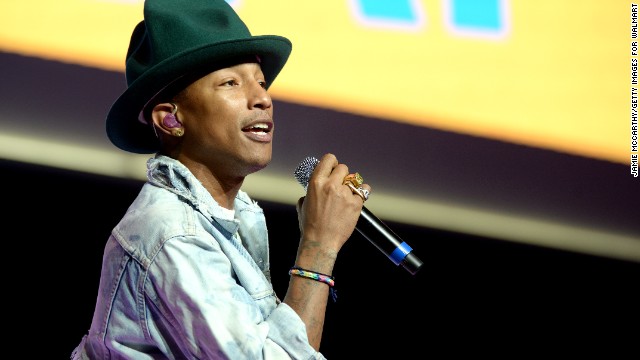 Pharrell Williams' Elle UK cover story came under fire in June because the "Happy" singer/songwriter was wearing a traditional Native American headdress. Amid the backlash, Williams tweeted to his #nothappy fans: "I respect and honor every kind of race, background and culture. I am genuinely sorry."
Pharrell Williams' Elle UK cover story came under fire in June because the "Happy" singer/songwriter was wearing a traditional Native American headdress. Amid the backlash, Williams tweeted to his #nothappy fans: "I respect and honor every kind of race, background and culture. I am genuinely sorry."  John Mayer's controversial 2010 interview with Playboy magazine brought so much heat for the singer/songwriter that he ended up crying during his apology. Mayer, who used the "N" word in the interview and claimed that he has a "white supremacist" penis, first gave a Twitter apology and then a tearful, public one during a concert in Nashville.
John Mayer's controversial 2010 interview with Playboy magazine brought so much heat for the singer/songwriter that he ended up crying during his apology. Mayer, who used the "N" word in the interview and claimed that he has a "white supremacist" penis, first gave a Twitter apology and then a tearful, public one during a concert in Nashville.  Shia LaBeouf is such a pro at apologizing that he's started to think outside of the box. After he tweeted that he "f****d up" when he copied another artist's work without credit in December, he then drove the point home by plagiarizing other famous apologies, skywriting his regret and then establishing a performance art piece called #IAmSorry.
Shia LaBeouf is such a pro at apologizing that he's started to think outside of the box. After he tweeted that he "f****d up" when he copied another artist's work without credit in December, he then drove the point home by plagiarizing other famous apologies, skywriting his regret and then establishing a performance art piece called #IAmSorry.  Mel Gibson publicly apologized in 2006 after going off on an anti-Semitic rant when he was pulled over for driving under the influence. The remorseful statement was thorough, but it hasn't erased Gibson's actions, which have since included allegations of the actor making racist remarks in arguments with his ex-girlfriend.
Mel Gibson publicly apologized in 2006 after going off on an anti-Semitic rant when he was pulled over for driving under the influence. The remorseful statement was thorough, but it hasn't erased Gibson's actions, which have since included allegations of the actor making racist remarks in arguments with his ex-girlfriend. 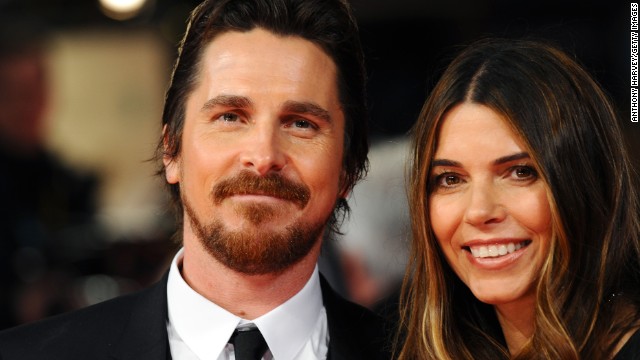 Christian Bale actually encouraged the media to make fun of him after his expletive-filled rant on the set of "Terminator: Salvation" leaked in 2009. "I deserve it completely," Bale said at the time. "I was out of order beyond belief. I was way out of order. I acted like a punk. I regret that."
Christian Bale actually encouraged the media to make fun of him after his expletive-filled rant on the set of "Terminator: Salvation" leaked in 2009. "I deserve it completely," Bale said at the time. "I was out of order beyond belief. I was way out of order. I acted like a punk. I regret that." 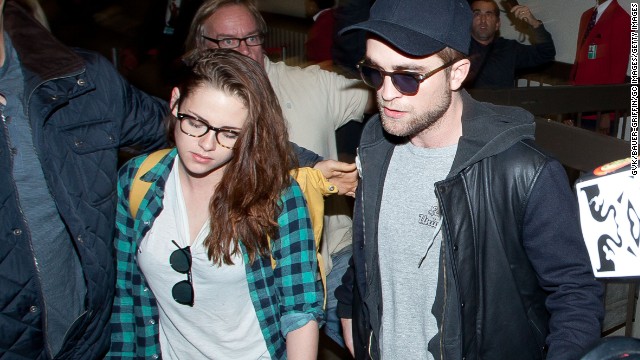 For celebrities who want to apologize for something without ever actually saying what they're apologizing for, Kristen Stewart is the new standard. The actress released a statement in 2012 amid gossip that she cheated on her boyfriend Robert Pattinson with "Snow White and the Huntsman" director Rupert Sanders that says everything while saying nothing at all. "I'm deeply sorry for the hurt and embarrassment I've caused to those close to me and everyone this has affected," she said. "This momentary indiscretion has jeopardized the most important thing in my life, the person I love and respect the most, Rob. I love him, I love him, I'm so sorry."
For celebrities who want to apologize for something without ever actually saying what they're apologizing for, Kristen Stewart is the new standard. The actress released a statement in 2012 amid gossip that she cheated on her boyfriend Robert Pattinson with "Snow White and the Huntsman" director Rupert Sanders that says everything while saying nothing at all. "I'm deeply sorry for the hurt and embarrassment I've caused to those close to me and everyone this has affected," she said. "This momentary indiscretion has jeopardized the most important thing in my life, the person I love and respect the most, Rob. I love him, I love him, I'm so sorry."  David Letterman dropped a bombshell in the fall of 2009 when he admitted on his CBS late night talk show that he'd had affairs with a number of women on his staff. During a live taping of the show, Letterman first took several shots at himself, and then grew more serious: "I'm terribly sorry that I put the staff in that position," he said. "My wife, Regina, has been horribly hurt by my behavior ... Let me tell you folks, I've got my work cut out for me." Earlier that summer, Letterman also said he was sorry to Sarah Palin for what he called "a bad joke."
David Letterman dropped a bombshell in the fall of 2009 when he admitted on his CBS late night talk show that he'd had affairs with a number of women on his staff. During a live taping of the show, Letterman first took several shots at himself, and then grew more serious: "I'm terribly sorry that I put the staff in that position," he said. "My wife, Regina, has been horribly hurt by my behavior ... Let me tell you folks, I've got my work cut out for me." Earlier that summer, Letterman also said he was sorry to Sarah Palin for what he called "a bad joke."  Following his 2009 assault of then-girlfriend Rihanna, Chris Brown first tried to apologize with a personal video shared online, telling those watching that he was "truly, truly sorry that I wasn't able to handle the situation both differently and better." He then booked a seat on CNN's "Larry King Live," telling the show's host that he couldn't believe what happened. Judging from the public's perception of the singer, it seems neither apology has been accepted.
Following his 2009 assault of then-girlfriend Rihanna, Chris Brown first tried to apologize with a personal video shared online, telling those watching that he was "truly, truly sorry that I wasn't able to handle the situation both differently and better." He then booked a seat on CNN's "Larry King Live," telling the show's host that he couldn't believe what happened. Judging from the public's perception of the singer, it seems neither apology has been accepted. 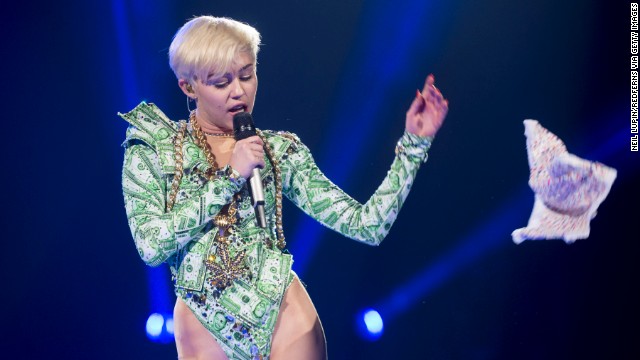 Miley Cyrus isn't one to make a lot of apologies -- if you didn't like her twerking on MTV, that's too bad -- but she isn't immune to saying "I'm sorry." When suggestive photos of a then-15-year-old Cyrus surfaced in 2008 -- including one that showed her wearing just a bedsheet on the cover of Vanity Fair -- she said in a statement that she was "truly sorry" if she "disappointed anyone." Similar grievances were given after she was seen smoking a bong in 2011 and when a racially insensitive photo emerged in 2009.
Miley Cyrus isn't one to make a lot of apologies -- if you didn't like her twerking on MTV, that's too bad -- but she isn't immune to saying "I'm sorry." When suggestive photos of a then-15-year-old Cyrus surfaced in 2008 -- including one that showed her wearing just a bedsheet on the cover of Vanity Fair -- she said in a statement that she was "truly sorry" if she "disappointed anyone." Similar grievances were given after she was seen smoking a bong in 2011 and when a racially insensitive photo emerged in 2009. 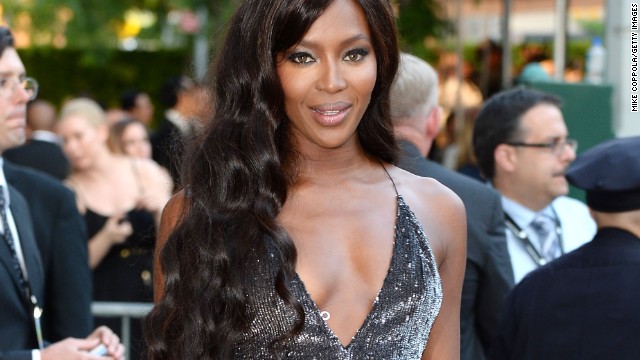 Naomi Campbell and Alec Baldwin have at least one thing in common: they know how to give excellent non-apologies. When she got into a tiff with airline British Airways over lost baggage in 2008, the supermodel apologized for assaulting police but refused to apologize to British Airways, which she accused of racism.
Naomi Campbell and Alec Baldwin have at least one thing in common: they know how to give excellent non-apologies. When she got into a tiff with airline British Airways over lost baggage in 2008, the supermodel apologized for assaulting police but refused to apologize to British Airways, which she accused of racism.
- Rose McGowan called gays "misogynistic" during a podcast
- She's since apologized, but not for the message she was trying to send
- McGowan says she wants to see more gay men support women's rights
(CNN) -- "Charmed" actress Rose McGowan has a bone to pick with the gay community -- but first she has an apology to make.
McGowan recently spoke with filmmaker Bret Easton Ellis on his podcast about sexism and misogyny, and the topic turned to her frustration with what she sees as a lack of support from the gay community for women's rights.
"I see now basically people who've fought for the right to stand on top of a float wearing an orange speedo and take molly (MDMA)," McGowan said. "And I see no help, and I see no paying it forward, and I have a huge problem with that. ... There are so many things to help and do, and I see no extending of a hand outside of the gay community to another community, and that's a problem for me."
She also said that "gays are as misogynistic (as straight men), if not more so. ... I have an indictment of the gay community right now; I'm actually really upset with them."
Some have turned to Twitter with criticism of the actress, saying McGowan's observation doesn't hold water.
Twitter user J. Kimball Currier told McGowan: "I fought for the right to marry the person I love, not to take drugs in speedos on a parade float. That's spite, plain & simple."
When the backlash poured in, McGowan took to Twitter, in addition to posting opinion pieces in The Advocate and The Huffington Post, with an apology and a clarification.
"I made a dumb generalization, and for that I apologize," she said in her opinion piece. "For everything else I said, no, I will not."
"Where does it say that because of a man's sexual preference, I don't get to point out character defects?" McGowan continued. "When equal pay for women was voted down by every male Republican there was no LGBT outcry. I wondered why that was? After all, lesbians are women, this affects them, too, right? Misogyny infuriates men, and it endangers me as a human."
To be clear, "Gay men certainly aren't MORE misogynistic than heteros, but I've met some that have come damn close," the actress and director said. "In some ways it's more damaging, because it's coming from supposedly enlightened people.
"I do expect more from a group of people that understands discrimination. ... What I want is for gay rights activists to help other disenfranchised groups. These activists are experts while so many other groups flounder. It's time to share the wealth and knowledge."
While some have been offended by McGowan's remarks, others say she has a point -- albeit a poorly articulated one.
The Twitter user who called her comments spiteful has since received a personal apology from McGowan, which he's accepted.
But Currier adds: "I can't speak for all gay men but I for one have ALWAYS stood for and defended women. Always."
No comments:
Post a Comment